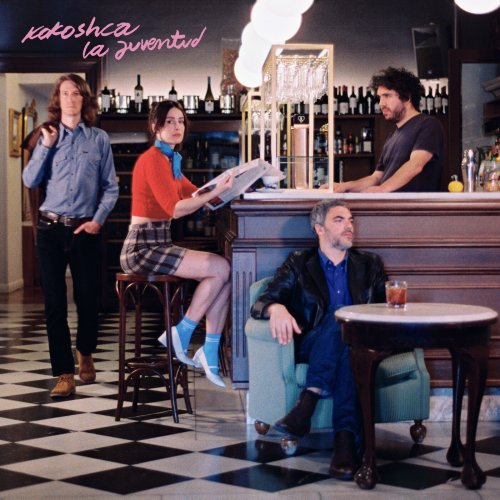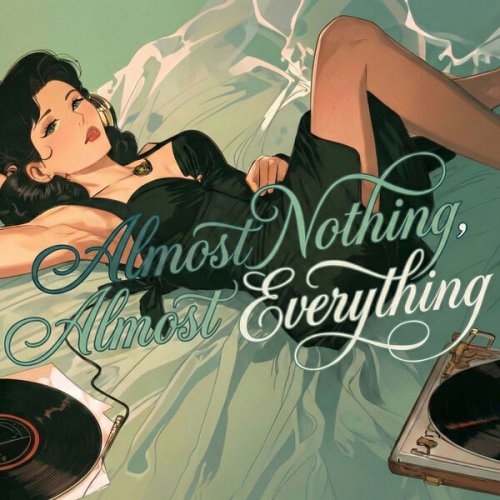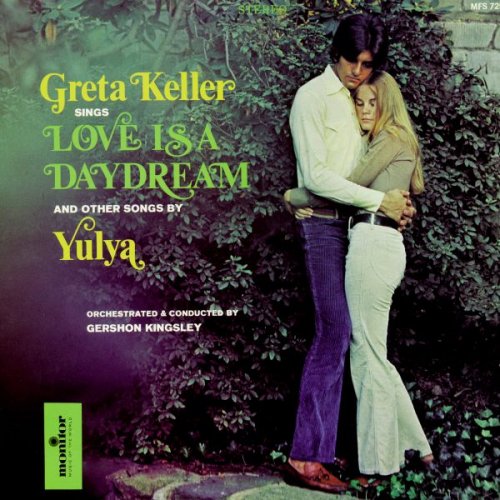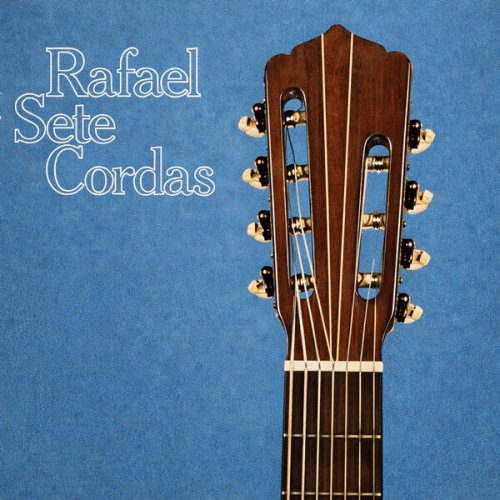Kokoshca - La juventud (2024) Hi-Res

Artist: Kokoshca
Title: La juventud
Year Of Release: 2024
Label: Sonido Muchacho
Genre: Rock, Alternative, Indie Rock
Quality: 320 / FLAC (tracks) / FLAC (tracks) 24bit-96kHz
Total Time: 35:16
Total Size: 82 / 241 / 734 Mb
WebSite: Album Preview
Tracklist: Title: La juventud
Year Of Release: 2024
Label: Sonido Muchacho
Genre: Rock, Alternative, Indie Rock
Quality: 320 / FLAC (tracks) / FLAC (tracks) 24bit-96kHz
Total Time: 35:16
Total Size: 82 / 241 / 734 Mb
WebSite: Album Preview
01. Tienes que saber esto (2:17)
02. La juventud (3:18)
03. Lo que hay en mi (3:26)
04. Huella de ti (3:17)
05. El verano (4:17)
06. Parkour (3:04)
07. Mi Barrio (3:10)
08. Sácame a bailar (4:24)
09. Nos pasa siempre (3:22)
10. Es una suerte (4:41)
On the cover of ‘La juventud’, Kokoshca’s eighth album, we see Iñaki drinking a glass lost in his thoughts. Amaia holds a newspaper, while looking at the camera. Íñigo is the one who challenges the daring buyer of the vinyl the most, grabbing a jacket in a “fucker” way. And Álex works as a waiter. The four members of the Navarrese group represent various ways of facing life, the passage of time.
Fed up with the message that there is an age for everything, and that society penalizes aging, Kokoshca talk in ‘La juventud’ about some of the dilemmas of middle age: continuing to go out, being “always blind” or being slaves to work, a theme that had already appeared in their discography. Gentrification and capitalism also appear tangentially in lyrics such as ‘Mi barrio’ or ‘Parkour’.
Pepe Mújica opens the album with a speech in which he reminds us that “life slips away, but you can give it direction.” It is the prelude to a fun album, in which optimistic messages about the meaninglessness of life generally prevail, even though we of course come up against obstacles.
‘Lo que hay en mí’ hates “working so much” and is a song to freedom: “I just want to get out of this cage and fly again.” Another universal message is found in ‘Mi barrio’, which appeals to everyone in the following way: “I sing this for the borrokas, for the posh people, and the nuns / I sing this for the retarded, for your parents and my parents / I sing this for the workers, the insubordinate and the gypsies / I sing this for my neighborhood.”
The single ‘Parkour’ celebrates a whole race against the current, using this practice as a metaphor: “I spend my life upside down, and that’s how you find me, doing parkour.” And that “getting through life” also affects the love songs. This is the case of ‘El verano’, a letter full of very Cohen choruses and questions to someone we no longer know anything about; and of ‘Huella de ti’, which also talks about someone we cannot forget, containing an express tribute to Astrud: “just a year ago I gave myself a year to be better.”
The thematic unity is total, well closed with the return of Pepe Mújica for the last track, in contrast with a musical production that moves more freely than ever, certainly at times, “doing parkour.” Amaia has dared with a corrido tumbado, ‘Mi barrio’, because at this point if they laugh at them “they don’t care at all.” The album fearlessly wanders between kraut pop (‘Sácame a bailar’), the Stone Roses sound unusually mixed with Autotune (‘Lo que hay en mí’) or reggae (‘Nos pasa siempre’).
Their strong point continues to be urban rock, and that is why songs like ‘Huella de ti’ or ‘Parkour’ promise to work just as well as on the previous album ‘Te sigo esperando’, which was not a single. And the stylistic oscillations are the least of it when as an author you can come up with a song with the impact of ‘Es una suerte verte (siempre)’. The final ballad is a wonderful answer for all those who believe in love of any kind; for many of the questions that this album contains: «I see my dreams burn, my youth fades away, I am not afraid of growing old, I am afraid that you are not there.» As beautiful and eternal as the end of ‘Grease’.
Fed up with the message that there is an age for everything, and that society penalizes aging, Kokoshca talk in ‘La juventud’ about some of the dilemmas of middle age: continuing to go out, being “always blind” or being slaves to work, a theme that had already appeared in their discography. Gentrification and capitalism also appear tangentially in lyrics such as ‘Mi barrio’ or ‘Parkour’.
Pepe Mújica opens the album with a speech in which he reminds us that “life slips away, but you can give it direction.” It is the prelude to a fun album, in which optimistic messages about the meaninglessness of life generally prevail, even though we of course come up against obstacles.
‘Lo que hay en mí’ hates “working so much” and is a song to freedom: “I just want to get out of this cage and fly again.” Another universal message is found in ‘Mi barrio’, which appeals to everyone in the following way: “I sing this for the borrokas, for the posh people, and the nuns / I sing this for the retarded, for your parents and my parents / I sing this for the workers, the insubordinate and the gypsies / I sing this for my neighborhood.”
The single ‘Parkour’ celebrates a whole race against the current, using this practice as a metaphor: “I spend my life upside down, and that’s how you find me, doing parkour.” And that “getting through life” also affects the love songs. This is the case of ‘El verano’, a letter full of very Cohen choruses and questions to someone we no longer know anything about; and of ‘Huella de ti’, which also talks about someone we cannot forget, containing an express tribute to Astrud: “just a year ago I gave myself a year to be better.”
The thematic unity is total, well closed with the return of Pepe Mújica for the last track, in contrast with a musical production that moves more freely than ever, certainly at times, “doing parkour.” Amaia has dared with a corrido tumbado, ‘Mi barrio’, because at this point if they laugh at them “they don’t care at all.” The album fearlessly wanders between kraut pop (‘Sácame a bailar’), the Stone Roses sound unusually mixed with Autotune (‘Lo que hay en mí’) or reggae (‘Nos pasa siempre’).
Their strong point continues to be urban rock, and that is why songs like ‘Huella de ti’ or ‘Parkour’ promise to work just as well as on the previous album ‘Te sigo esperando’, which was not a single. And the stylistic oscillations are the least of it when as an author you can come up with a song with the impact of ‘Es una suerte verte (siempre)’. The final ballad is a wonderful answer for all those who believe in love of any kind; for many of the questions that this album contains: «I see my dreams burn, my youth fades away, I am not afraid of growing old, I am afraid that you are not there.» As beautiful and eternal as the end of ‘Grease’.


![Illinois Jacquet - Swing's The Thing (1960/2026) [Hi-Res] Illinois Jacquet - Swing's The Thing (1960/2026) [Hi-Res]](https://www.dibpic.com/uploads/posts/2026-01/1769713003_cover.jpg)

![VA - Café Deluxe Chill Out - Nu Jazz / Lounge, Vol. 13 (2026) [Hi-Res] VA - Café Deluxe Chill Out - Nu Jazz / Lounge, Vol. 13 (2026) [Hi-Res]](https://www.dibpic.com/uploads/posts/2026-01/1769771474_x2mmraj6yos69_600.jpg)
![Balázs Elemér Quintet - Remembering 80/81 (2026) [Hi-Res] Balázs Elemér Quintet - Remembering 80/81 (2026) [Hi-Res]](https://www.dibpic.com/uploads/posts/2026-01/1769767496_cover.jpg)
![Soothsayers - Fly Higher (2026) [Hi-Res] Soothsayers - Fly Higher (2026) [Hi-Res]](https://www.dibpic.com/uploads/posts/2026-01/1769615946_ekj1m8f2kpbpa_600.jpg)
![Anne Paceo - Atlantis (Deluxe Edition) (2026) [Hi-Res] Anne Paceo - Atlantis (Deluxe Edition) (2026) [Hi-Res]](https://www.dibpic.com/uploads/posts/2026-01/1769709338_kwz9wyhqeqpgf_600.jpg)
![Compro Oro - Lamellomania (2026) [Hi-Res] Compro Oro - Lamellomania (2026) [Hi-Res]](https://img.israbox.com/img/2026-01/29/z9k9v7p2kvdnm71ct3xbsyljw.jpg)